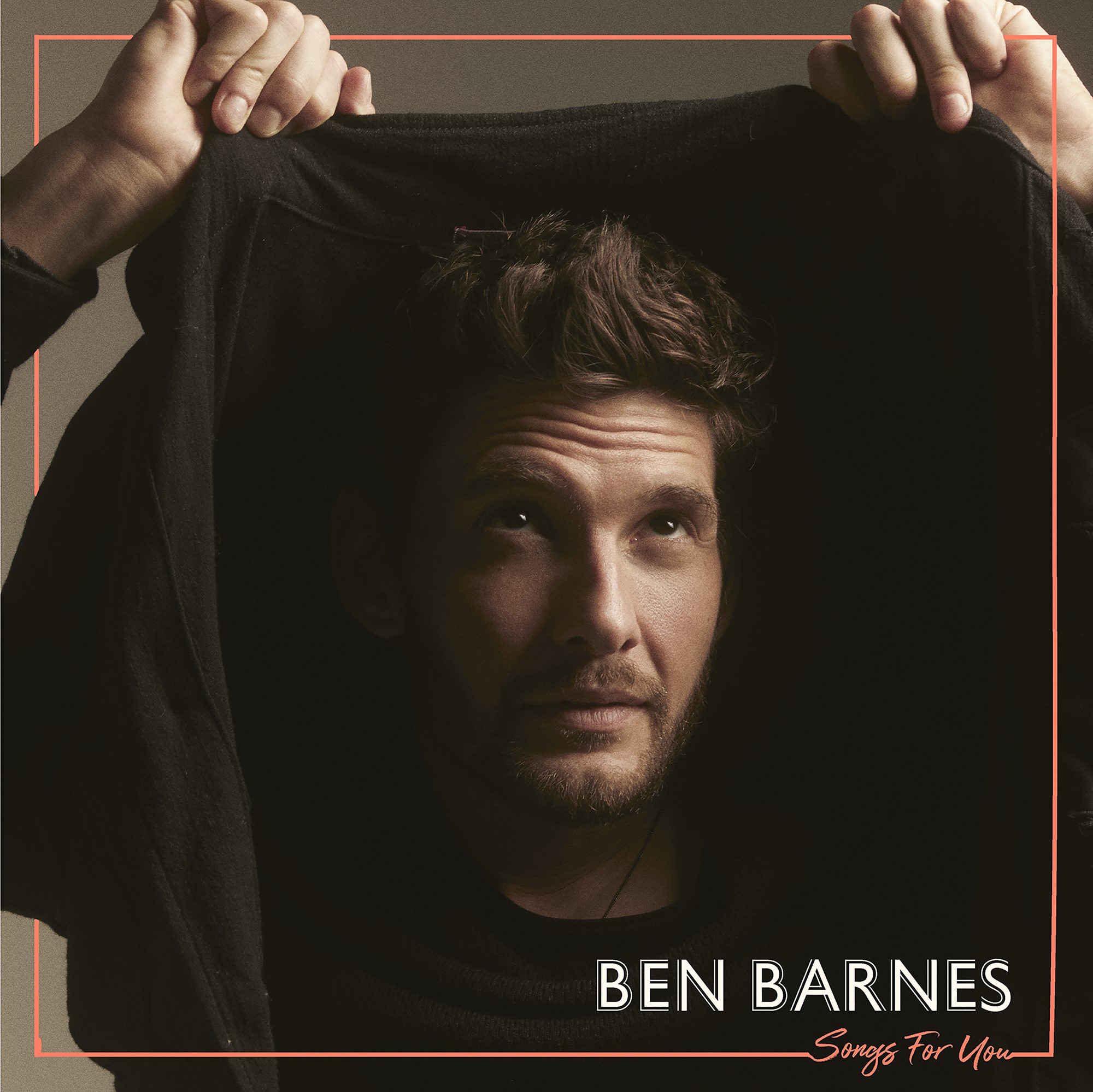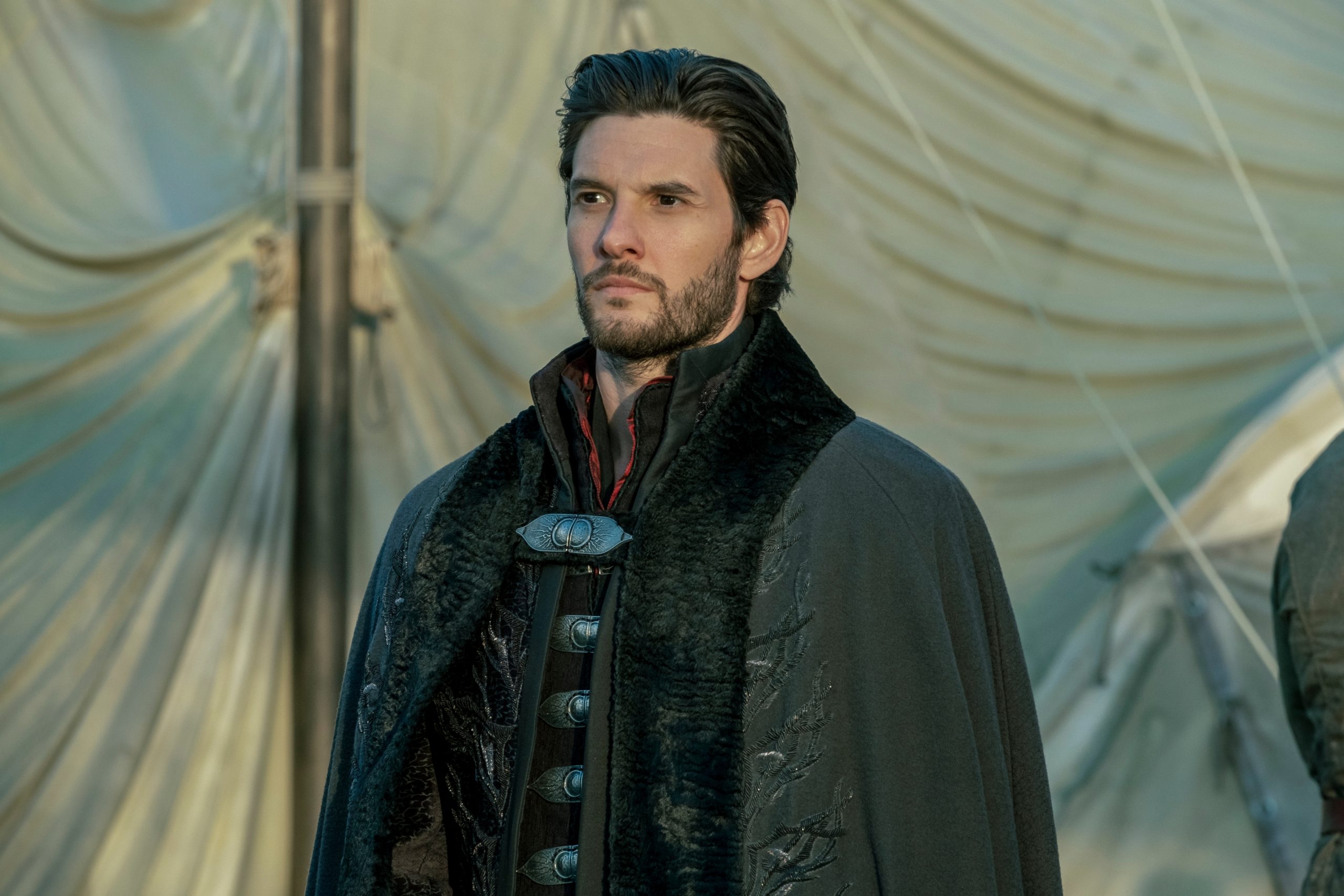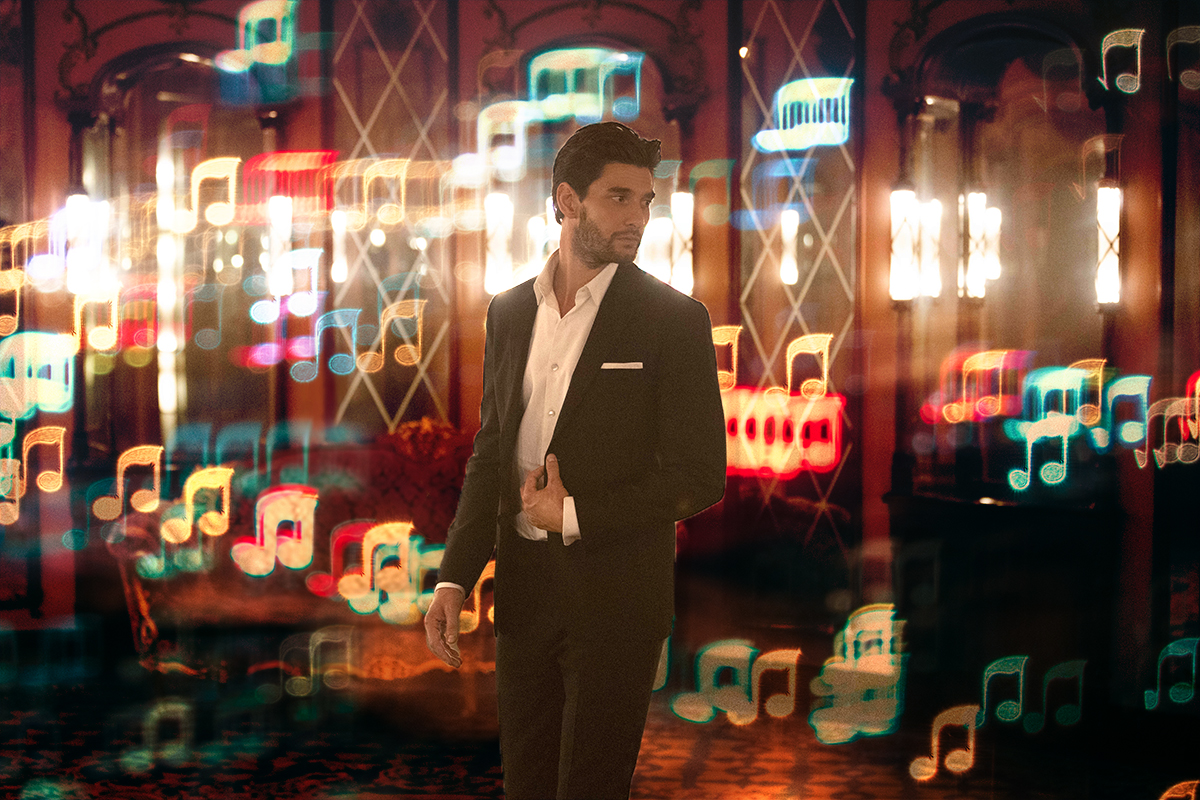Ben Barnes is finally ready to show the world a different side of himself. After two decades of wanting to go into music, the actor, best known for his roles in “The Chronicles of Narnia,” “Westworld,” and “Shadow and Bone,” has finally done it: His debut EP, “Songs for You,” is out this Friday.
“It’s been scratching at me for years, since I was about 17 or 18,” Barnes explains to me over Zoom from his hotel room in Toronto, where he’s currently filming a Netflix horror anthology from Guillermo del Toro called “10 After Midnight.” “What would my music sound like? What does my voice sound like? Even if I did know what it sounded like, what would it say?”

Now, the world knows: The EP is ’70s-style soul pop, with an emphasis on piano (though the third track, “Pirate Song,” has a more disco-y feel, with a clear brass backing track). The lyrics, written by Barnes, touch on themes of love and hope. On my personal favorite track, “Not the End,” Barnes sings, “They may tell you live, laugh, love / they’re just trying to be your friend / I won’t tell you live, laugh, love / if it’s not okay, it’s not yet the end.”
His decision to release his debut EP, now at age 40, is partly thanks to the COVID-19 pandemic. “I ascribe a lot of it to having the time to sit. A lot of people mull over our identity and what it is we want to do in this life, and what it is we want to share, and that answer was pretty resounding for me. That’s how we got here. I’m thrilled that I’m here.”
The day after the release of the first single, we chatted about finding his voice, how his Jewish mom’s advice encouraged him to release new music (plus some bullying from his fans), why he gets typecast as a villain and his immense dislike of karaoke.
This interview has been lightly condensed and edited for clarity.
When we posted an acceptance speech from you for our Jewish pop culture awards, your fan base went bananas. We were blown away by the response, I don’t think we realized the extent of your fan base on the internet.
It’s very difficult to tell just how many there are, because the ones that are there are so passionate and loud.
No, there’s definitely a lot!
It’s sometimes hard to tell, but yeah, they’re pretty supportive.
What’s it like to have such a dedicated fan base supporting you?
It’s the best kind. That kind of fan base — I’m very lucky. It doesn’t extend to the point where it affects my day-to-day anonymity. But, anytime there is an interaction, which is most days, it’s usually buoying and positive. It doesn’t become purely about selfies or some display of fandom. It’s about genuinely meeting a person, connecting, and I totally understand it, because I’m such a fan of so many shows, films and music. I have the opportunity to meet a lot of my heroes, and have that connection and ownership and have that moment for myself as well, quite often. So I totally understand.
When “Shadow and Bone” came out earlier this year, do you feel like your fans changed, or anything else changed for you, because of the worldwide success of the show?
To me, it’s been fairly incremental. I started on the Narnia films, which had their own [fanbase], and then going through different projects that have had different success with different types of people — “The Punisher” has that Marvel fan base, which is a whole different sort of audience from “Narnia.” “Westworld” [was for] people who like that challenging type of television, and then “Shadow & Bone” [went] back to the fantasy roots, but for a slightly different generation. At this point, it’s lovely to be on something that people are watching. You put in so much care and passion and love and attention and energy into making something like that, you live away from everything that’s comfortable to you for half the year, and it demands a lot of you. To have the intimacy of that feedback, the “I am watching it, I do see it, I do appreciate it, I do enjoy it, I did get something out of it, it meant something to me,” makes it completely worthwhile.
So why this moment to pivot to music?
There are so many reasons. I released the first song yesterday, and I was talking to somebody and it struck me that there are two verbs which people use to talk about music, which is you share it and you release it. And to me, it was very much those two feelings yesterday. It felt like a release after some 20 years of wanting to do it. It’s out there. No one can ever take it away from me that I was an actor and a songwriter. Now it’s official. And then the other thing was sharing. This started through me singing covers of things on Instagram and those fans you mentioned, buoying me and encouraging me and bullying me into it, essentially.
I love the idea that they bullied you into releasing music. What made you decide to pursue acting over music at the start of your career?
When I was 19, I signed with Simon Fuller, the manager who created the Spice Girls. I was recording some jazz stuff with him, but also presenting to a TV show, and they just didn’t know quite what to do with me. The “Pop Idol” thing was coming out — the jazz thing wasn’t very popular for them. And so it all just sort of dissipated. That was quite frustrating for me because I thought I was sort of onto something. So I just poured energy into university and theater and plays and directing, and realized I would find music through that. But it has taken me much longer than I thought to put out something of my own.
But you did!
But I did, exactly!
What has the reaction to your first single been like? I know it’s only been out one day.
It’s been so positive and warm. People had a minute with it now, so to see people sitting at their pianos covering the song, or just videoing themselves dancing to it or whatever it might be, brought me unfathomable joy. The song makes them happy for whatever reason, or the song makes them feel sorrowful or the song makes them feel nostalgic or the song makes them feel hopeful, or whatever it makes them feel because it’s connected to the people in their lives — and that, to me, is the whole point of what music is for.
What are you most excited for in the release of the EP? Is it the fans hearing it? The performing?
Well I don’t know what the performing thing will be, because obviously, I’ll have to go back to “Shadow and Bone,” so I’m not sure that will be for quite a while and whether it’s sort of lost steam enough to make that worthwhile at that point. I don’t know. But yes, that is definitely the next challenge, the hump to get over for me, is that right now that sounds terrifying. But at some point, I’m sure that would be amazing and so fulfilling. So it’s definitely on my list of new scary challenges. I’m excited when the EP comes out for people to have a favorite, or for people to connect to a specific song for whatever reason. And then I’m excited about what I would do next, musically, and how it will fit around what I do for my day job.
I’ve listened to all of “Songs for You,” and I feel like the music is showing a softer, maybe more authentic side of you, as you said, than the characters we’re used to seeing you portray.
I mean, I would like to do more films that are like that! I just don’t seem to get cast. I always thought I would — well, I never thought I would do anything, I thought I would be in the chorus of musicals standing at the back. But when it did start happening for me, I thought I would end up doing more Hugh Grant type roles, and then I end up playing psychopaths.
I’m very grateful for [these roles], because it means that I spend the time reaching down into those parts of myself that do have that; I just genuinely and earnestly believe that everyone has the capacity to be everything. It just happens to be that I’ve been challenged to portray things that are not the colors that I wear up front in my home life, or with my friends and family.
But the music has to be authentic and honest and pure because it can’t be anything else, you can smell it. The whole point of [making music] for me is that I’m 40 years old, and I made something. I’ve been a conduit and a translator, and I’ve obviously contributed to a lot of the things that I’ve been involved with. Even in projects which are supposed to be fantastical or supposed to be intriguing, mysterious, I always try to sandwich in some kind of hopefulness. That is the link, the river, that runs through the whole EP: It doesn’t matter what situation I’m talking about, I’m looking for the hope in it.

Maybe that’s why you keep getting cast in these darker roles: to bring some lightness.
Yeah, I don’t think that’s wrong. When I first started on “Shadow and Bone,” Archie [Renaux], who plays Mal, invited me to talk to his acting students. They would do something, and I’d say, “This is wonderful, but you’re doing exactly what you’ve been asked to do.” My instinct is always to look at the opposite. If there is power and darkness here, what is the light contrast? The soft contrast, the hopeful contrast? You don’t know what it means to feel fear, if you’ve never felt peace; it can only be in contrast with something. There’s an essential quality to that. That’s the other thing that songs have in common. I’m very lucky — the way I was raised to always look at things from everybody’s perspective. My mom is a brilliant psychotherapist; empathy was almost like a second language in my house.
What was it like growing up with a therapist mom?
It was pretty, pretty wonderful, to be honest. My parents are extraordinary people — understanding, loving people. I owe everything to them. When I was 14, my mum released a book called “A Woman’s Guide to Loving Sex,” and I went to an all boys school, so that I could have probably done without. But aside from that… [laughs]
Was Judaism a part of your childhood?
My mom was raised Jewish, and it’s certainly important to her, which means it’s important to me. The rabbi that we used to go and do Passover with — I remember learning the questions phonetically, because I’d never been to Hebrew school or anything. The rabbi was like, “How did you do that?” And I said, “Well, I learned them by listening to them.” And he said, “Well, why did you do that?” And I said, “Oh, I just did it for mum.” And he goes, “Oh, that’s very Jewish.”
We do Hanukkah candles and all that stuff. Even though my dad wasn’t religious, he would do it for my mom, too. I went to a sort of Christian school and my father’s not religious at all, so you grow up thinking, “Well, none of this can be definitively right.” So you have to build your own, basically.
Do you have any favorite Jewish holidays or Jewish foods?
Well, I’m a big fan of challah. And, I’m a romantic, so the candles — any candle in general, to be honest — but certainly, I’ll take when there’s lots of them, and you have to light them in a specific time and order. My house was the kind of house where four days in [to Hanukkah], my mom is screaming around the house going, “We forgot! We gotta do four!”
Have your family and friends heard “Songs for You” yet? What was their reaction?
The most resounding review was what you hinted at earlier about the authenticity, which was like, “It sounds like you are.” That, to me, was the best compliment because that’s all I set out to do.
Of the five songs on the album, my favorite was “Not The End.”
That song was actually about life advice that my dad would dispense, or roll his eyes at the fact that it was clichéd: that John Lennon quote about how it’ll be OK in the end, and if it’s not OK, it’s not the end. That always stuck with me since I was really young. And I was like, oh, it’d be nice to do a song that’s about that clichéd life advice. And then I kept seeing those commercials about people mocking it when you say “live, laugh, love,” which I always thought was a lovely thing to say! A lovely thing to focus on.
I love the album’s use of piano — I read that you taught yourself how to play?
I had one piano lesson when I was about 8, and I remember the teacher shaming me at the end of the lesson, asking me where middle C was, and I didn’t know! Then this 4-year-old girl came in, and [the teacher] got her to show me where it was, and I felt so ashamed that I never went back. And I deeply regret that because, you know, 32 years later, I’d be amazing.
My mum pointed out to me something about priorities and how priorities work: Your priorities are not the things that you tell people your priorities are; they’re the things you actually prioritize. That sent a jolt up to me to prioritize the things that actually are important. And one of those things was, I would keep telling people that music was so important to me, but not actually following through with it. So I did.
As you go back into filming “Shadow and Bone” season two, how are you going to continue your music career?
I’ll definitely rent a piano while I’m there, so I can do my thing and stay sane. There’s a bar that we all go to that has a piano in it, so maybe this time we’ll get bold enough [to try it]. Kit [Young] who plays Jesper is very musical as well. Maybe we can make the most of being away.
Do you have a go-to karaoke song?
I really don’t! Karaoke makes me incredibly uncomfortable. I feel like people enjoy karaoke the most when someone is terrible.
Sure, sure. And you’re not terrible!
When you go up there and try to be good, but feel a bit shy about it, that’s the worst. So I’ve never really enjoyed it for that reason, but I probably should sort that out and just pick something.



